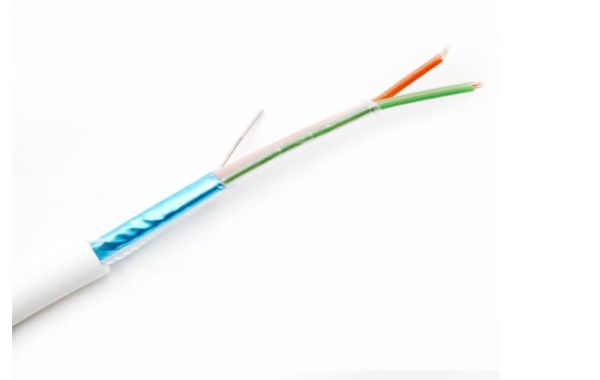Although alarm systems only need to send signals through a conductive material, we cannot use the same wires we use for everything else. Because there is no room for signal interference, a shielded security alarm cable becomes essential.
What cable is used for alarm systems?
There are several cable types marketed for usage in alarm systems. However, the best cable we can use is a shielded security alarm cable. It meets any alarm system's requirements with the right core count and AWG number specifications. The structural strength makes it better than standard twisted pair, composite, and ethernet cable for security alarm purposes.
What are the main qualities to look for in a shielded security alarm cable?
When buying an alarm cable, there are some qualities you must keep in mind. When you use the shielded security cable, it brings the following qualities.
Conductor material
Selecting the right core conductor material is the most important. You need a bare copper core for the best flow of signals through the alarm system. Besides, CCA makes a good choice but going for the expensive materials can also increase the overall cost of your whole alarm system. The shielded security cable comes with CCA and bare copper core materials for the best conductivity.
Shielding material
Next is the shielding material. The shielding here not only has to provide physical strength to the wire, but it must shield the signals from external fields and prevent interferences. In this way, signal integrity in your alarm system can be maintained. The shielded security cable has aluminum foil shielding to protect it from external interference.

Insulation material and diameter
Insulation material protects from physical damage, and its diameter makes the wire durable. Higher the diameter, the more reliable the wire will be. With PCV insulation material of around 1 diameter, the alarm cable can withstand most of the physical stress it is put through. PVC material is also good for longevity, as one conductive core will not touch others.
Sheath material and diameter
Sheath plays an important role in isolating the security cable as a whole. That thick layer of insulation goes over all the insulated copper wires. The sheath can create a strong outer layer with durable materials like PCV and LSZH. With these materials, the security-shielded cable usually comes with a 3.5mm diameter, so the cable cannot be cut easily without the right tools.
Working temperature
Lastly, the operating temperature matters the most because the alarm security cable will be installed in different conditions. These conditions may include extreme outdoor cold or extreme internal hot conditions inside a factory. With an operational range between -30 to 60 degrees Celsius, the shielded cables can work almost anywhere.
See which shielded security alarm cable meets your requirements
A shielded security alarm cable not only ensures proper connectivity between different components of your alarm system but also ensures that the cable is strong enough to deal with environmental harshness. On top of that, the sheathed structure makes these wires physically strong, so they cannot be cut easily without the right equipment.







